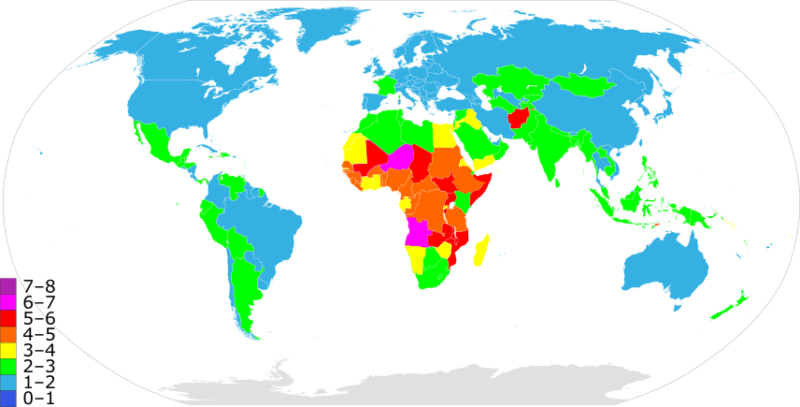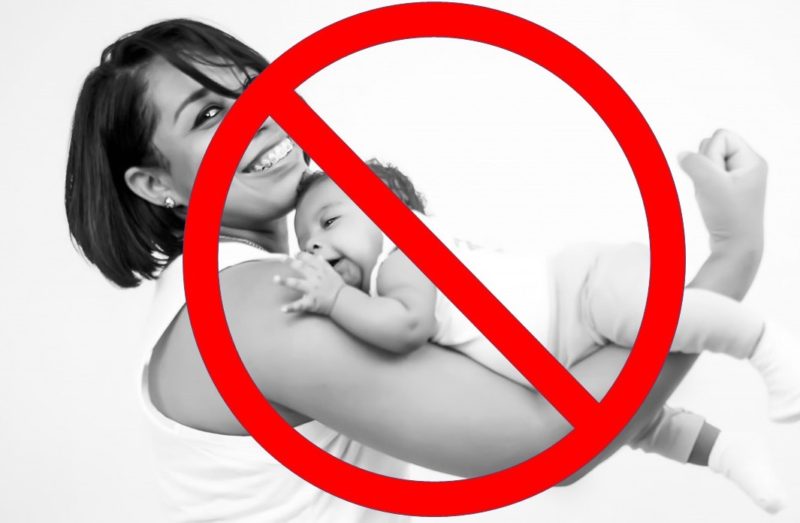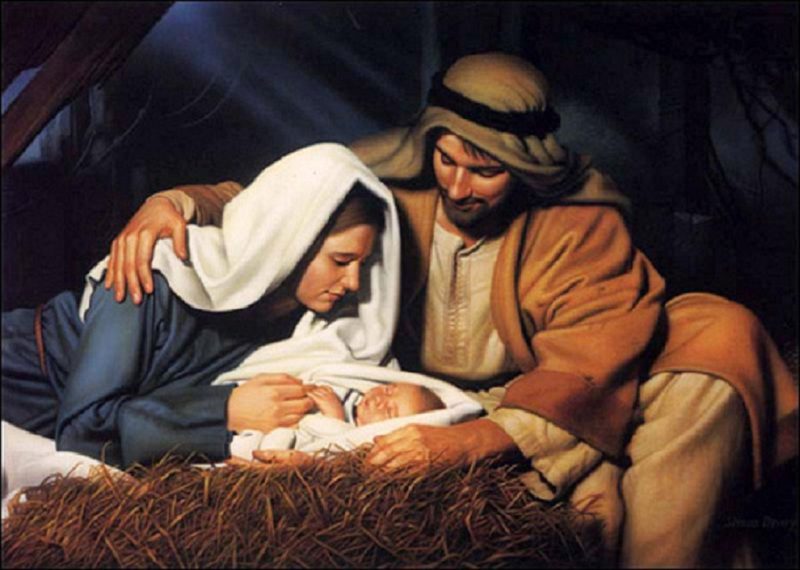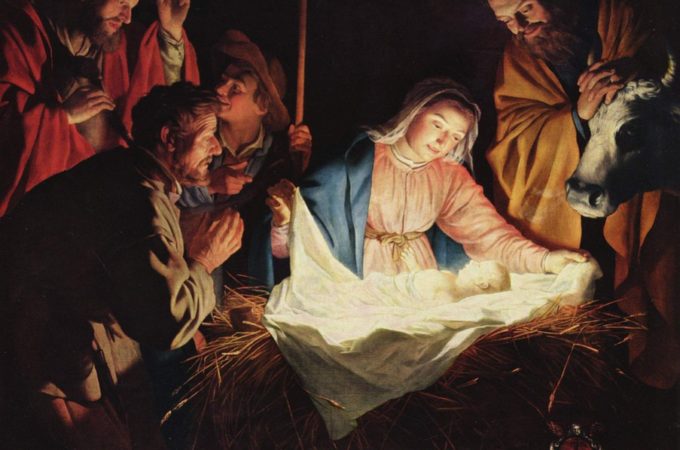Christmas celebrates the moment in history when a young woman conceived a child by the Holy Spirit and gave birth to the promised Messiah of the Jews and Savior of the world.
For to us a child is born,
to us a son is given;
and the government shall be upon his shoulder,
and his name shall be called
Wonderful Counselor, Mighty God,
Everlasting Father, Prince of Peace.
For generations, motherhood and the family have been among the highest values in Western and other cultures; today, these are often held in disdain. How are we to celebrate Christmas in our post-maternal, post-family, post-Christian world?
The biblical narrative reveals God creating human beings Imago Dei (in His image) male and female, to form families who will govern creation. The wedding of Adam and Eve for family formation is the prologue of human history; the ultimate wedding, of Christ and his Bride, comes at the end of history.
In the middle of the narrative we have Christmas, the fulfillment of Isaiah’s prophecy: “Behold, the virgin shall conceive and bear a son, and they shall call his name ‘Immanuel’—which means, ‘God with us,’” Matt 1:23.
A post-Christian climate is leading us to a post-human world. This includes, with the rise of evolutionary ideology, a post-moral world. The rise of radical feminism has led to a post-maternal world. As modernism begins its slow demise, postmodernism has given rise to a post-truth culture.
Our world is in grave danger. Fewer women are having babies. Nations are committing cultural and national suicide. Christmas is a great time to remind the world about the roots of a culture of life, hope and family formation.
Post-maternal culture
The post-maternal culture will have a profound effect at the micro level of individual women, and a profound effect at the macro level of national and cultural survival as well. The 1960s “Population Bomb” myth is being exploded. Social scientists are now speaking about a Demographic Winter and The Empty Planet.
The anti-maternal culture, promoted by radical feminist ideology, has had its desired effect: a rapid decline in fertility rates leading to the advancing demographic winter. Joel Kotkin writes, “Throughout the world, the urban centers that dominate contemporary economy and culture—Beijing, Tokyo, New York, Los Angeles, Boston, Sydney, and San Francisco—are becoming ‘demographic graveyards.’”
The graphic below shows the global pattern of fertility in 2018. Growth has dropped in virtually every nation, including Sub-Saharan Africa, where the average rate in 2018 was 4.78.

Fertility is divided into three levels. A 2.1 fertility rate (2.1 children per woman) represents a stable or growing population. Approximately 100 countries are at or above this level.
About 50 nations have begun to fall in population and are now between 2.1 and 1.8, slightly below the replacement level. These countries can reverse their decline with a concerted national effort.
A rate of 1.8 or below is “sub-replacement fertility.” Sixty-six countries are in this “death spiral,” a grave danger increasingly difficult to reverse. A nation in this range is in the process of national suicide. The tragic irony: many people believe the planet is overpopulated. Often, by the time a nation acknowledges the truth, it’s too late to change the anti-maternal culture.
No country has ever recovered from a rate of 1.3 or below, known as the “lowest-low fertility.” Eleven countries—including Singapore, Taiwan, Hong Kong, Puerto Rico, and South Korea—have passed this point of no return. An average of one child per woman cuts a nation’s population in half in 30 years.
Anti-maternal influences
Our rapid decline in maternity began in the 1960s with the emergence of radical feminism and its anti-natal vision.
South Korea has suffered a rapid decline in fertility in the last 15-20 years. In the third quarter of this year, the nation’s rate fell to 0.88. I have been traveling to Korea since the mid 1980s and have watched the rise in anti-maternal culture. Tragically, Korea’s gradual national/cultural suicide parallels its personal suicide rate, the second highest of any industrialized country.
 The spirit of the age is anti-maternal, for various reasons.
The spirit of the age is anti-maternal, for various reasons.
Radical feminism puts money ahead of the maternal. The cry, “A woman has the right to work” (as if a mother does not work) rings hollow. In reality, according to this framework, unless you work in the marketplace, you have no value. In Australia, some propose that a woman who stays home to mother her children should be taxed.
The modern environmental movement values “nature” over humanity. It has spawned the Voluntary Human Extinction Movement (VHEMT), whose website states:
As VHEMT Volunteers know, the hopeful alternative to the extinction of millions of species of plants and animals is the voluntary extinction of one species: Homo sapiens… us.
Each time another one of us decides to not add another one of us to the burgeoning billions already squatting on this ravaged planet, another ray of hope shines through the gloom.
When every human chooses to stop breeding, Earth’s biosphere will be allowed to return to its former glory, and all remaining creatures will be free to live ….
Another new movement, “Birth Strike,” is “too concerned by the consequences of ecological collapse to have children.”
A third dimension of our anti-natal culture is the rapid acceptance and expansion of the LGBT movement, whose members have fewer children.
Post-family is the opposite of Christmas
Post-family culture—the consequence of post-maternal influence—is growing globally, especially in industrialized, materialistic societies. Consumerism is attacking not only the maternal but also family formation, to such an extent that we have moved into a post-family culture.
Single people over 18 comprise 45% of the U.S. population. Twenty-eight percent of American households are singles. This trend is opening a new housing market: studio and micro apartments where singles sleep but do not live.
Here’s an example of a micro apartment floor plan. Singles may work long hours, eat, entertain and socialize out. They need only a place to sleep and shower.
The distinction between rural and urban dwellers is growing. Urbanites are more often post-family: single, divorced, or living alone. Their political and cultural views tend to be more “progressive.” Rural people tend to be more politically conservative and family oriented, holding traditional values. As a gross generalization, single women tend to be more career oriented, pro-abortion and vote Democratic. Married women tend to be more maternal in orientation, pro-life and vote Republican.
This rural-vs.-urban distinction influences national voting patterns. Great Britain shows a similar division; Brexit is driven by rural and pro-family culture and opposed by post-family voters. Similarly, France’s yellow vests are a rural protest of the cultural elites in Paris. Other European nations are moving toward nationalism and away from internationalism, dividing over pro-family vs. post-family culture.
World population currently stands at 7.7 billion, and the rate of increase is slowing. John Ibbitson and Darrell Bricker argue in Empty Planet, “In roughly three decades the global population will begin to decline. Once that decline begins, it will never end.”
We can stand against the tide
 Jesus’ birth affirmed God’s design for the human family. Christmas can inspire Christians to fulfill the Cultural Mandate: “Be fruitful, and multiply, and replenish the earth, and subdue it: and have dominion,” Genesis 1:28.
Jesus’ birth affirmed God’s design for the human family. Christmas can inspire Christians to fulfill the Cultural Mandate: “Be fruitful, and multiply, and replenish the earth, and subdue it: and have dominion,” Genesis 1:28.
“Do not be conformed to this world, but be transformed by the renewal of your mind, that by testing you may discern what is the will of God, what is good and acceptable and perfect,” Romans 12:2. Too many Christians conform to the spirit of the age. If today’s spirit has invaded your life, I hope this Christmas message will move you back toward sanity.
Christians can stand against the tide of modern and postmodern culture. We can celebrate the story of the virgin conceiving and the launch of the holy family in a Bethlehem stable. We can embrace the principles and virtues of the biblical narrative. May we celebrate marriage and the formation of families. And let us celebrate the maternal, nurturing nature of woman.
- Darrow Miller







2 Comments
John
December 25, 2019 - 12:11 pmWow! What a mishmash of fact and fiction, but then that is only appropriate for a christmas message. Yes, the birth of Yeshua, the Messiah, is a pivotal point in history, and while we don’t know the exact day of his birth, we can absolutely know that it was not in December. We can also know that it was very likely in October, which just happens to be at the time of a celebration that God did ordain – Sukkot, the feast of tabernacles. This would be consistent with the other events of Christ, namely his death at Passover and the first post-Christ revival, the outpouring of the Holy Spirit at Shavuot, the feast of weeks.
Christmas is about Christ in little more than name. It is about trees and lights and candy and food and reindeer and fat bearded men and gifts/stuff and more stuff because stuff is the essence of being loved. While God is love, He is also holy and true. I suggest that you can’t really have one without the other.
admin
December 28, 2019 - 7:28 amHello John
Hope you had a Joyus Christmas.
It is the birth of Jesus that brings hope and joy to the world. His birth also celebrates the wonder of the maternal nature of women and the formation of families that is so essential for healthy, stable and flourishing societies.
Happy New Year, my friend.